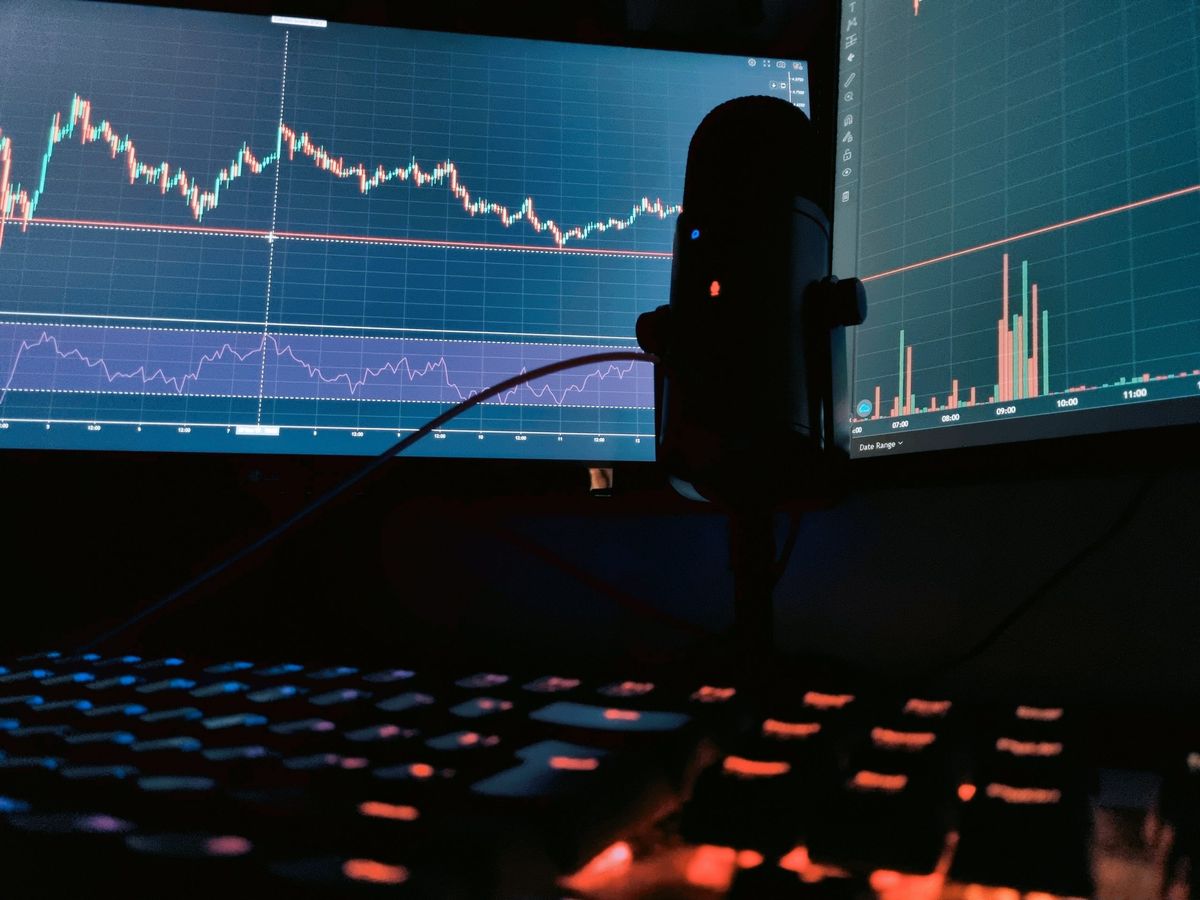The stock market is a complete mess 5 Experts Predict What Will Happen Next

This week, investors were left spinning as the stock market fell back into bear territory. Global instability, soaring inflation, and rate rises have all contributed to the market’s dizzying year.
Now we’re asking, “What’s next?”
With inflation being uncomfortably high and another aggressive rate rise from the Federal Reserve predicted next month, the market is likely to be choppy.
“Investors should brace themselves for further market volatility,” said Mahesh Odhrani, licenced financial planner and president of Strategic Wealth Design, a financial planning business.
Because the market’s short-term fate is determined by a variety of circumstances, all forecasts about what will happen next are only educated guesses. In order to combat inflation, the Fed has raised interest rates five times this year.
According to Federal Reserve Chair Jerome Powell, a recession now appears more likely than a “soft landing.” And, while it’s hard to predict how severe the recession will be or how long it will endure, such a slump would undoubtedly cause additional misery across the board, including an increase in unemployment.
While analysts see a light at the end of the tunnel, the market normally worsens before improving. Here’s what five experts predict will happen as 2022 draws to a close and we prepare for 2023.
Where analysts believe the stock market will go
Market uncertainty will continue.
“Until recently, investors and markets have misjudged inflation and the resilience of the US economy. Over the next six months, market volatility is unlikely to change.” — Mahesh Odhrani, president of Strategic Wealth Design and a financial planner.
Expect an official recession.
“The stock market will remain turbulent in 2023. A recession in 2023 is extremely likely, which implies the stock market will likely continue to fall.” — Doug Carey, WealthTrace’s president and chartered financial analyst.
At best, it’s a guessing game.
“Anyone who tells you they know what’s going to happen, you should definitely go as far away as you can in the opposite direction.” — Sonja Breeding, CFP and Rebalance’s vice president of investment counselling.
Next year, ‘reasonable returns’ are possible.
“If inflation falls as a result of the Fed’s proactive initiatives, I believe we will see respectable returns in the stock market over the following year.”
By Robert Johnson, chairman/CEO of Economic Index Associates and professor of finance at Creighton University’s Heider College of Business.
One stock market indication is encouraging.
We’re finding that P/E ratios are considerably more in line with, or even lower than, historical norms for most items, which speaks well for the future.” — Intellicapital Advisors, LLC’s Kirill Semenov, CFP and wealth adviser.
Expect more volatility.
Volatility is the one thing you can depend on in the stock market right now.
Expect little change in market volatility over the next six months since the challenges to economic development remain the same, including the war in Ukraine, the European energy crisis, global inflation, supply chain concerns, and several climatic catastrophes, according to Odhrani.
And what happens with inflation will have a huge impact on market developments. According to Sonja Breeding, CFP and vice president of investment counselling at Rebalance, market volatility might diminish if inflation stabilises and the Fed begins to back off on rate rises. She did, however, provide a warning: “I don’t have a fortune teller. It’s difficult to say.”
According to Doug Carey, chartered financial analyst and president of WealthTrace, a web-based financial and retirement planning programme, a recession until the summer of 2023 is anticipated, which implies the stock market will endure significant falls for a little longer.
Although the performance of the US economy in the first half of 2022 meets the formal criteria of a recession (two consecutive quarters of decrease), an official recession has yet to be declared. Still, the economy is unstable, as seen by recent market performance.
While experts can make some predictions based on past market trends, don’t put too much stock in forecasts. “Anyone who tells you they know what’s going to happen, you should probably go as far as you can in the opposite direction,” Breeding said.
There are signs that the market may revive next year.
However, it is not all doom and gloom in 2023. Historically, when inflation begins to moderate, the Fed begins to cut interest rates, and the stock market begins to recover. “History suggests that when it is evident that the economy is in a recession, that is when the recovery begins,” Carey explained.
“If inflation falls as a result of the Fed’s proactive activities, I believe we will see acceptable returns in the stock market over the next year,” said Dr. Robert Johnson, CEO of Economic Index Associates. At the same time, Johnson cautioned that any unanticipated events, such as another epidemic or world strife, might undermine the plan.
Nonetheless, the most recent figures on price-earnings ratios have experts feeling upbeat. P/E ratios measure a stock’s current price to its most recent earnings per share and are considered fairly accurate indications of market direction. A high P/E ratio often implies a growth business, but it may also signal that a firm is overvalued.
“We’re finding that the P/E ratios are much more in line with or even lower than historical norms for most items,” said Kirill Semenov, CFP at Intellicapital Advisors. “While no indicator can provide a complete picture, lower P/E ratios are typically seen as a better time to invest than purchasing into inflated prices.”
Investment decisions to make in a volatile market
Investing is fraught with ups and downs. In this present atmosphere, experts propose long-term investments that will allow you to ride out the storm. With markets currently in decline, investing now may include purchasing equities at a reduced price.
Here are some market investment suggestions from professionals.
Take precautions.
Lower-risk, long-term investments dispersed across numerous firms or industries can help you diversify your risk. According to Johnson, most investors should choose an index fund over actively trading equities.
“Too many individuals assume that active trading is required to generate money,” Johnson stated. “The ideal method for most investors is to simply invest in a wide index fund that tracks the performance of the market, either mutual funds or ETFs [exchange-traded funds].”
Diversify your holdings.
Rather of placing all of your eggs in one basket, Odhrani suggests diversifying your investing portfolio.
“Remain diversified across numerous asset classes and industries,” he said. “Baseball is all about singles and doubles, as the saying goes. Diversification is about hitting singles and doubles rather than attempting to smash a home run. Diversification can help to ease the ride over time, especially in stormy markets.”
Don’t let your savings account money deteriorate.
Although some high-yield accounts have begun to provide savings rates of 2% – 3%, the majority are still close to 0%. “Leaving too much money in bank accounts or money market accounts that yield very little interest can damage savings,” Carey says.
While you should have enough money in a readily accessible savings account to meet emergencies (three to eight months’ worth of basic costs), whatever money you have left over can be put to greater use.
“If inflation is 7% per year and you have money in a bank account yielding 0.5%, after 5 years, roughly 40% of the value of this money is wiped out in terms of purchasing power,” Carey explained.
According to Carey and Semenov, Treasury bonds are one of the greatest ways to outperform inflation right now. TIPS, commonly known as bonds and I bonds, are Treasury Inflation Protected Securities (TIPS). another treasury-backed investment instrument, both of which now provide savings returns above 9%, which can help you hedge against inflation.
Hold hold tight for the trip.
When you see so many equities in the red, it’s tempting to liquidate your holdings. Odhrani advised against making rash decisions.
“It’s unpleasant, and investors are concerned,” he continued, “but making premature judgments may harm them.” “We feel that being calm, invested, diversified, and focused on long-term goals is the greatest thing investors can do in wild times like these.”
Rather of jumping ship when equities are down, playing the long game may result in larger gains in the end. “You never know when the market will peak or valley,” remarked Breeding. So, spending a specific amount on a monthly basis might help you average your buying price overall, regardless of market conditions.
Finally, Breeding believes that the US stock market will recover from its fall.
“We’ve created our civilization on hard work and determination,” Breeding remarked. “I believe that will continue in the future and help the economy as it has in the past.”


